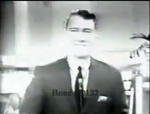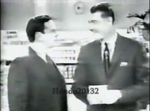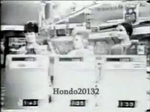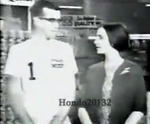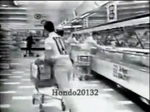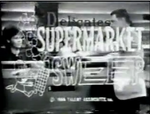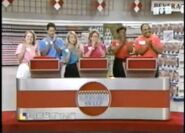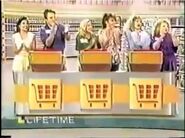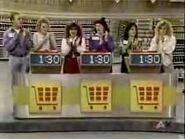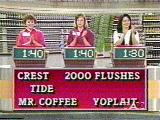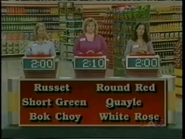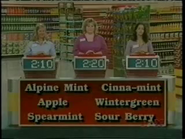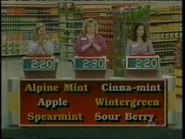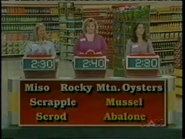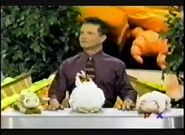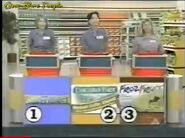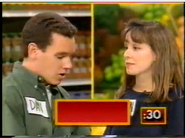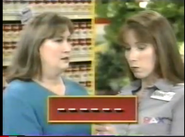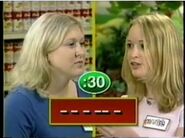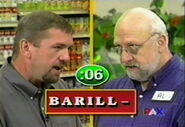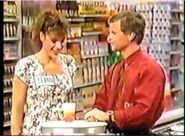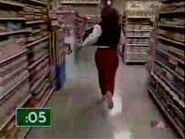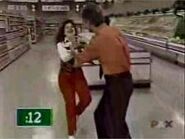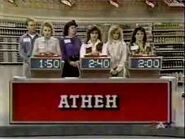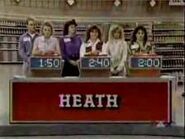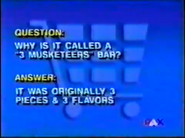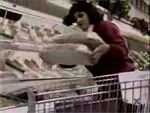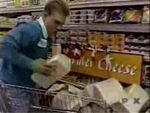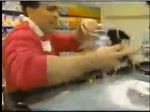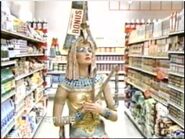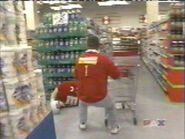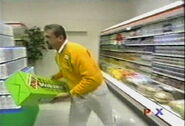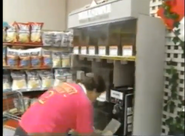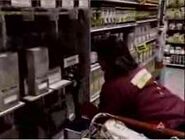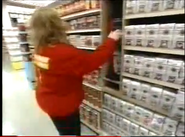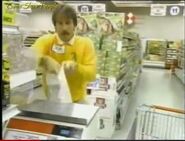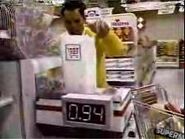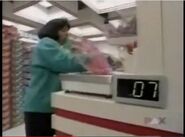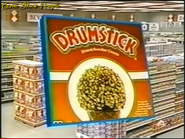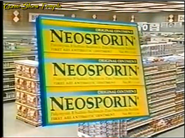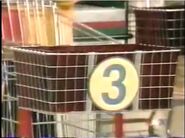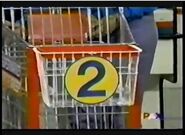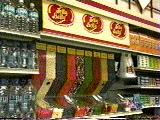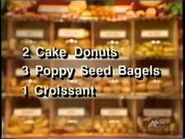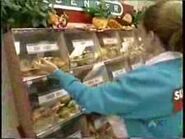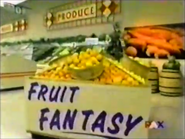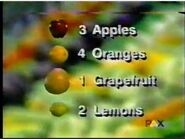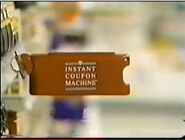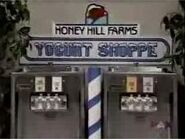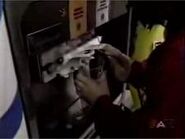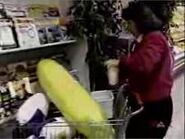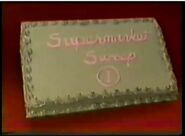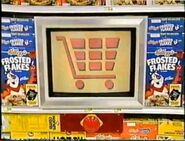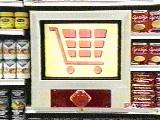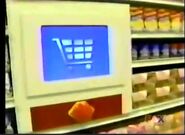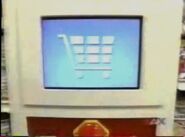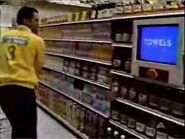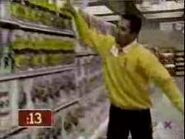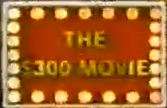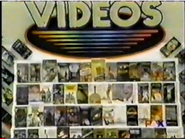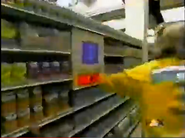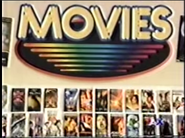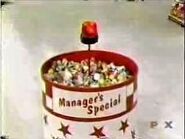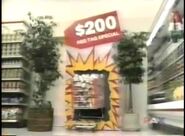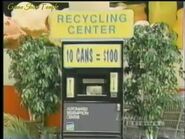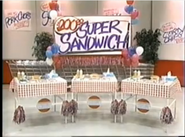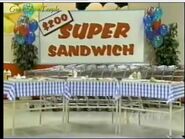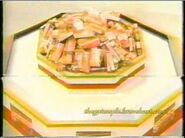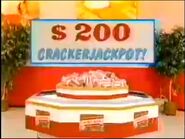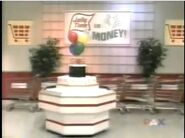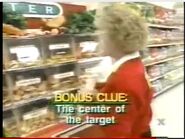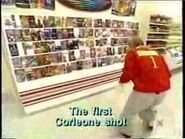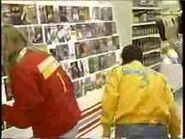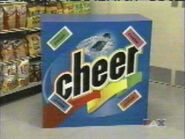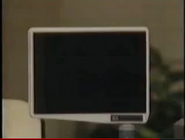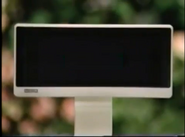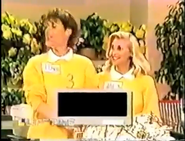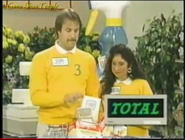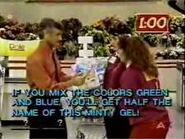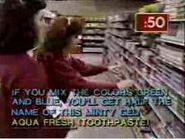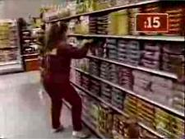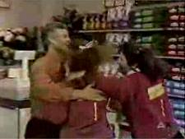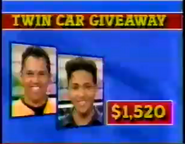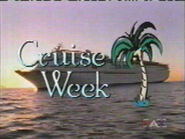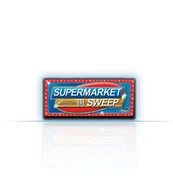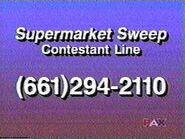m (→Question types) |
(Editing a gallery) |
||
| Line 263: | Line 263: | ||
300 Movie Clue 1.PNG|Here's a Team #1 contestant finding this clue: "Michael Keaton"... |
300 Movie Clue 1.PNG|Here's a Team #1 contestant finding this clue: "Michael Keaton"... |
||
300 Movie Clue 2.PNG|...and a Team #3 contestant getting this clue: "In a cape". Can you figure out the movie? |
300 Movie Clue 2.PNG|...and a Team #3 contestant getting this clue: "In a cape". Can you figure out the movie? |
||
| + | Movies.PNG|Which '''MOVIE''' do you like? Time once again for the $300 Movie. |
||
</gallery> |
</gallery> |
||
* '''Manager's Special''' or '''Red Tag Special''' (Value: $200) - During the Sweep, Ruprecht announced the "Manager's Special" or the "Red Tag Special" of the day via the market's loudspeaker (later his announcements became pre-recorded, often reused). The contestant had to run to a red-and-white barrel at the front of the market for the Manager's Special or a shopping cart at the back of the market for the Red Tag Special that was filled with products and find the specially marked item (marked with a red star or a red X for the Manager's Special, a red tag for the Red Tag Special). An unmarked item awarded no bonus to the team, even if it was the correct product. Sometimes gags (such as a severed hand, a rubber chicken, etc.) would be put into those props for humor. |
* '''Manager's Special''' or '''Red Tag Special''' (Value: $200) - During the Sweep, Ruprecht announced the "Manager's Special" or the "Red Tag Special" of the day via the market's loudspeaker (later his announcements became pre-recorded, often reused). The contestant had to run to a red-and-white barrel at the front of the market for the Manager's Special or a shopping cart at the back of the market for the Red Tag Special that was filled with products and find the specially marked item (marked with a red star or a red X for the Manager's Special, a red tag for the Red Tag Special). An unmarked item awarded no bonus to the team, even if it was the correct product. Sometimes gags (such as a severed hand, a rubber chicken, etc.) would be put into those props for humor. |
||
Revision as of 17:17, 25 July 2014
| Hosts | |
| Bill Malone 1965-1967 David Ruprecht 1990-1995, 2000-2003 | |
| Announcers | |
| Wally King 1965-1966 Richard Hayes 1966-1967 Johnny Gilbert 1990-1995, 2000 Randy West 2000-2003 | |
| Broadcast | |
| ABC: 12/20/1965-7/14/1967 Lifetime: 2/5/1990-5/26/1995 PAX: 4/3/2000-5/23/2003 | |
| Packagers | |
| Talent Associates 1965-1967 Al Howard Productions 1990-2003 | |
Three teams of two contestants played a game of answering questions and supermarket shopping.
Gameplay (ABC version)
Three teams, usually married couples, competed. Each team began with a base time of one minute and thirty seconds. In the first part of the game, the teams were shown a grocery item and were asked to guess its retail price. The team who came the closest won the item and an additional 15 seconds to their time. Four items were played.
In the second part of the game, one contestant from each team went on a shopping spree through the market, using the time accumulated in the first half of the game. Several bonus prizes ranging in value from $10 to $100 would be spread throughout the store. After each contestant ran their sweep, the total value of groceries and bonus prizes in each player's cart was determined. The team with the highest total won the right to return to the show and play in the next game. All teams kept the groceries and bonuses they picked up.
Gallery
Gameplay (Lifetime/PAX version)
The gameplay of the Lifetime/PAX version of Supermarket Sweep consisted of three segments: the question round, the Big Sweep, and the Bonus Sweep. The game was played between three teams of two related individuals, such as a parent and child, spouses, siblings, or best friends. In the last two rounds, the team members wore sweatshirts of the same color (aqua blue for Team #1 [green in earlier tapings], burgundy for Team #2, yellow for Team #3 [blue in earlier tapings] [the colors of the first two teams switched starting in 1993]). The show gave the appearance that pairs were chosen to be contestants based on who in the audience (or in the show's last two seasons, the market) held pre-distributed grocery items that the announcer called for at the beginning of the show.
Question round
At the beginning of the game, all three teams started with a base time of 1:30. The questions answered correctly added time to their clocks. The round was divided into three segments; in the first two segments, one teammate from each team answered a variety of questions and/or played one of several games that involved pricing everyday grocery items, with the teammates switching between segments. The third segment was the Round Robin game, in which the teammates rotated after each question.
Question types
Players were asked a series of questions, usually with a specific brand of grocery items as answers; each question was worth 10 seconds. In each round, the questions followed a specific format, which varied between rounds and shows. The formats used on the show included:
- Guessing which item a series of interesting facts described.
- Determining the brand name of a product, the picture of which had the brand name edited out.
- Slogans - Guessing which item went with a particular slogan or jingle.
- Multiple Choice - Selecting one or more of the answers to a series of questions from a bank of four, five or six possible choices. A famous saying or phrase was asked to the contestants, belonging to which answer.
- Three Right - Six choices were given to the contestants. They were asked which three out of the six belonged to a certain brand or item or genre. All three contestants buzzed in and guessed which one of the three items that were correct. So this was a chance for all three contestants to pick-up 10 seconds. Three sets of games were played.
- Word Games - Filling in the blanks to reveal a product's name; contestants were either given clues and/or letters that were progressively added (either randomly or spelled backwards). Sometimes only the first & last letters were given, and three clues were read. Another variant had a partially-filled name, with some letters missing; again, three clues were given.
- Fill in the Blank - Two phrases, each featuring a blank, are seen, and both blanks have the same word. A later version was similar to Before & After puzzles on Wheel of Fortune, with a blank in the middle.
- This or That or Fact or Not a Fact - Questions with two choices were asked and only one team was allowed to buzz-in and answer; selecting the correct answer earned 10 seconds that team only; selecting the wrong one gave the other two teams 10 seconds each.
- Animal Sounds - Given 3 to 5 animals (cow, sheep, pig, chicken, and/or fish) as the answer choices, for which contestants had to make the correct animal's sound. If three animals were given, there was a rule in which they would answer by making a raspberry-blowing sound if it did not belong to any of the three animals.
- Twisted - Guessing a product's name from synonyms and/or antonyms that replaced each word. For example, "Cow's Ear" is a clue for BullsEye Barbecue Sauce.
- County Fair - Tested the players' sense of knowledge of a particular gadget.
- Supermarket Trivia - Trivia questions were asked about the items sold in the supermarket.
- Fat Chance - 3 items were shown, and the players had to determine which item had the fewest grams of fat.
- Checkstand Headlines – Facts about a famous person or event that were read about in checkstand tabloids were given to the contestants, and the contestants were to guess what the fact referred to.
- Proverbs – Facts about well-known expressions were given to the contestants, and the contestants were to guess by completing these popular expressions with items found or sold in the supermarket.
Pricing games
During each segment, different games were played involving everyday groceries. These games varied from day to day and generally involved the following objectives:
- Selecting which of three items was priced above or below a certain amount, was not a given price, was on sale, was incorrectly priced, was correctly priced, or was the most expensive.
- Determining how much of one item could be bought for a certain amount of money.
- Guessing whether the actual price for a product was higher or lower than the price displayed. A variation also included the possibility of the shown price being correct.
If a player was correct, the team earned 10 seconds; however, if all three players were right, 30 seconds was added to all three teams' times. In Season 1, however, all games, excluding the on sale version, had 20 seconds added to all three teams if all three players were right.
Special games
- 30-Second Shootout - At the beginning of the second segment of the question round, both contestants on a team played an individual game, which banked the team 30 seconds of Sweep time; each team took turns by playing the game individually. The format usually consisted of a contestant guessing a series of words using the clues given by his or her partner (similar to Pyramid and Password). The first letter of each correct answer was a letter in the name of a brand name or item from the market, which the guesser then had to identify to earn the Sweep time. Each of the teams had 30 seconds to achieve this (40 in the final Lifetime season), and if a word was accidentally blurted out by the clue-giver, the team was disqualified automatically.
- During the Lifetime era, the giver tried to get his/her partner to say any word or a name beginning with the appropriate letter. The guesser had to identify the product before time ran out. An additional rule was that once a clue was used on one of the words in the list, it was not to be used again (doing so would lead to disqualification of that team).
- In the PAX run, pre-selected words to which their initials spell out the product's name were given to the giver and s/he simply have to convey them to his/her partner. If the giver gets stuck s/he can pass and go to the next word. Also the "no repetitions" rule was lifted. When time was up, that's when the guesser tried to guess the product using the letters revealed, although s/he can guess while the clock was still ticking.
- On some episodes, an alternative format was used with a picture of a product shown. Each clue changed the product's picture.
- Snack Attack Movie Game - Three 10-second questions about movies were asked. The player who answered the last of the three questions correctly earned the right to take a taste test of a food item in the market; correctly identifying the item earned that team $50 for the Big Sweep. If the contestant guessed right on a second chance (multiple choice, and consisting of a maximum three choices), that team earned $25. In some cases, only one chance was used and the question consisted of only two choices.
Mini-Sweep
Beginning in Season 2, a Mini-Sweep was played at the beginning of the first round. A toss-up question (usually a rhyming couplet) was asked with a particular product as the answer. The team that correctly answered the question earned 10 seconds, as well as a chance for one team member to run into the market to retrieve the product, which was marked with the show's logo. If the product was returned within 30 seconds, the team won $50 towards their Sweep total. If the team member returned with the correct product, but was not marked with the Supermarket Sweep symbol on it, no bonus was awarded. However, if the contestant found the marked item but the Supermarket Sweep marker fell off the product, the cash bonus still counts.
In Season 3, the bonus was doubled to $100 if the product was brought back within 20 seconds. In Season 4, a second Mini-Sweep was added at the beginning of the second round and was later used only during special weeks on the PAX version.
Prior to Season 4, if the contestant won either cash bonus, an oval-shaped tag stand displaying the amount was placed in front of the cart in the show's final segment when the moment of truth took effect.
Round Robin
For the final segment, the teammates switched after each question. The contestants were shown the scrambled letters of a brand name, common food, or item, and three clues were given for 10 seconds each. If no one buzzed in and then answered correctly after the last clue was given, all three clues were repeated quickly. On some episodes throughout the entire Lifetime era, an alternative format was used with five clues given and no scrambled name. The Round Robin originally consisted of four questions, but was lengthened to six in the Fall of 1990 giving all teams a chance to earn up to 60 seconds (one minute). The maximum time available was 3:40.
Sweep Quiz
This was used during the final PAX season. At the end of the second segment, a quickie was shown as the show took a second commercial break, which was a question that viewers at home can answer. At the start of the third segment, the answer would be shown.
A variant of that was used in the final Lifetime season, which was a simple fun fact. This was used on some episodes at the end of the first segment while taking the first commercial break.
Another variant was used in some episodes of the first three seasons as well as early in season 4, where David asked a certain question to the home viewers at the end of the first segment before going to the first commercial break. At the start of the second segment, David gives the answer. On occasion, he also makes jokes afterward.
Big Sweep
The "Big Sweep" was the chance for the teams to run throughout the aisles and to grab whatever they could off of the supermarket shelves. The clock was set to the highest time that was earned by the three teams. The runner for that team was sent out into the market, with the other runners entering when their time had remained on the clock. During the Big Sweep, the show's announcer provided the "play-by-play."
The runner could bring their cart back to the team's register at any time, at which point it was exchanged for an empty cart. Any items in the runner's cart when the bell rang were included in their total.
The three main rules for the Big Sweep were:
- The teams could only take up to five of each item.
- Any items dropped and/or upset had to be returned to the shelf or in one's cart, or incur a $25-per-item penalty. Teams were also penalized $25 for running into supermarket displays, cameramen or any other personnel.
- Only one member of each team could be in the store at a time; the other team member was required to remain at the checkout counter to unload the groceries (with the exception of the doing of some money makers [see below]).
The product limit, which was absent in the original ABC version of the show, was added to prevent teams from overloading their carts with expensive items, such as poultry, laundry detergent, or over-the-counter drugs.
In most episodes of the show's first season on Lifetime, costumed characters such as Frankenstein's Monster, a gorilla, or a creature named Mr. Yuck ran through the aisles during the Sweep. They are referred to as Weird Customers. If the character came near a contestant or vice versa, the contestant had to turn around and go in the other direction. The characters were dropped in 1991.
Bonuses
Many bonuses were available during the Big Sweep at different times during the show's run. Each contestant was only able to take one of each bonus type. Some of these included:
- Bonus Specials (Value: $50–$200, later up to $250, $100-$300 during the Twin Car Giveaway) - The only bonus feature to appear in every episode. Three jumbo-sized stuffed animals, giant inflated balloons of products, or cardboard promotional signs for products with bonus tags attached to them were scattered throughout the market. In order for the bonus to count, the runner had to bring the item back to the checkouts and over the red line (without destroying it or the tag) before the time expired. A runner was allowed to steal an opposing team's item if it was left unprotected before getting it to the checkouts. These over-sized products and/or signs were worth $50, $100, or $200. In September 1993, a fourth bonus worth $250 (dubbed the "Super Bonus") was added to the market. During the Twin Car Giveaway Tournament, a $300 bonus (dubbed the "Super Super Bonus") replaced the $50 bonus. In all cases, only one bonus was allowed to a customer.
- Coffee (Value: $100, later $200) - Runners were required to grind a bag of coffee beans.
- Candy (Value: $100, later $200) - Runners were required to bag and weigh $1.00 worth of candy. Contestants can be off within two cents above or below $1.00, and the bonus was still earned.
- Beginning with the introduction of the candy, both it and the coffee bonus were available to shoppers on each episode. This changed in 2002 during the PAX era, where only one item–never both–was available each day. The item for that episode was announced at the start of the Big Sweep, and the bonus doubled to $200. Earlier, the candy was omitted from episodes that had the Jelly Belly money maker (see below), as Jelly Belly is a candy.
- Shopping List (Value: $250, later $300 for the Alphabet Game) - Before the Sweep, David gave a list of three products (originally four) in the market to be found. The Alphabet Game was played the same way, but with David mentioning three consecutive letters of the alphabet as well as the products beginning with those letters (the products had to be placed into mini-baskets that were located in the front of the carts to count, and only one of each item; multiple mini-baskets could be used if needed).
Other variations included the following:
- Magazine Display: Picking up three or four magazines that were listed by David, from the many titles to choose from.
- Jelly Belly Display: Bagging three flavors of Jelly Belly jelly beans that David wanted from the many flavors to choose from. This omitted the candy bonus to go along with the coffee, due to Jelly Belly being a candy.
- International Bread Center: Bagging certain quantities of three bread types that were listed by David, from the many bread types to choose from.
- Fruit Fantasy: Putting certain quantities of lemons, apples, oranges, and grapefruits into a fruit basket.
- Breakfast Break: Getting five breakfast items that David asked for with the help of their partners; all of these items had to be placed in mini-baskets; this was later changed to two breakfast items with David announcing over the loudspeaker and then dropped completely.
- Instant Coupon Machines: Three instant coupon machines were located throughout the market, and the contestant would grab a coupon and find the item for that coupon, and finding all three items with these coupons won $250.
- Frozen Yogurt Machine: Dispensing three flavors of frozen yogurt into a plastic cup (and in a certain order), from the following four flavors: Triple Fudge Chocolate, Vanilla Bean Dream, Sweet Peachy Peach, and Berry Berry Raspberry.
- Cake (Value: $100) - Runners had to find a cake-designing kit in the back of the store and give it to their partner, who had to design a cake at one of three tables in the front of the store, and write the show's name and the team's number on the cake.
- TV Mystery Product (Value: $250, $300 for The $300 Movie) - Runners tried to find a product using clues displayed on three television monitors in the market. This bonus was later changed to the use of two television monitors in 2001, which allowed other money makers using the TV monitors, including Splitting the Name, with one half of a product's name on each of the two monitors, and The $300 Movie, in which David would say "Activate the TV monitors" over the loudspeaker during the sweep, and the clues would be available for the contestants, in which they would find a single copy of the movie. Originally, the monitors were touchscreen, but often a clue would take too long to appear, taking up a contestant's shopping time; so this was later changed to buttons placed below the monitors; a contestant can receive their clues simply by pushing the monitors' buttons, which also activate red lights surrounding the buttons.
- Manager's Special or Red Tag Special (Value: $200) - During the Sweep, Ruprecht announced the "Manager's Special" or the "Red Tag Special" of the day via the market's loudspeaker (later his announcements became pre-recorded, often reused). The contestant had to run to a red-and-white barrel at the front of the market for the Manager's Special or a shopping cart at the back of the market for the Red Tag Special that was filled with products and find the specially marked item (marked with a red star or a red X for the Manager's Special, a red tag for the Red Tag Special). An unmarked item awarded no bonus to the team, even if it was the correct product. Sometimes gags (such as a severed hand, a rubber chicken, etc.) would be put into those props for humor.
- Stack Job (Value: $100, later $150) - Runners had to find one of three bags filled with empty soda cans that were spread throughout the market and return the bag to their partner. Their partner then had to go to their table and, using all 21 cans, stack the empty soda cans in the shape of a pyramid as shown before the Sweep began. Getting the "Stack Job" done awarded the team a token good for the bonus.
- Recycling Machine (Value: $100) - Three sacks containing 10 empty soda cans each were located throughout the market, and the runner would grab one sack and race it back to his/her partner. The partner then went to the machine and would crunch the cans, one at a time, and after crunching all 10 cans, a receipt was printed good for $100.
- Super Sandwich (Value: $200) - Before the Sweep began, the host specified a sandwich to make. Runners were required to make the sandwich precisely as described using ingredients set up on three tables; including five meats, two cheeses, lettuce, tomato, ketchup, mayonnaise, and mustard; then wrap it in aluminum foil and seal it in a bag with a twist tie. To earn the bonus, the contestant had to use all the ingredients, and the sandwich had to be in their cart before the bell. A later version had the shoppers run to the International Bread Center to grab the bread called "Sandwich Loaves", and then the partners would make the sandwich. That version is also used even if the International Bread Center and Super Sandwich are available in the Big Sweep in the same episode.
- Sweep Swipe or Market Madness (Value: $200-$250) - A limited supply of items (two cases of candy, five boxes of detergent, etc.) were placed in front of three tables or shopping carts, one for each of the three teams. Runners moved the items (from the floor or from another team's table or cart), one at a time, onto their own table or their cart. For each item in one's possession at the end of the bell, the team received a bonus (either $50 or $100 per item).
- Cracker Jackpot! or Jolly Time Is Money! (Value: $100, later $150 for Jolly Time is Money!; $200 for the Cracker Jackpot) - Runners tore open boxes of Cracker Jack or Jolly Time Popcorn in order to find a token with the show's shopping cart logo on it.
- Bonus Envelope (Value: $200) - Halfway through the Sweep, the host announced a clue to a specific product. After hearing the clue, the partners at the checkout counter ran into the market to find their teammates and give them the clue. If the teammate points out the item to their partner, the money was lost. Runners had to find the product and take the bonus envelope that was located next to it. A variation, called the Video Envelope, was played where the envelope was attached to a video, and the contestant would grab the video with the envelope attached on the back.
- Giant Box of Laundry Detergent (Value: $25-$100 in $25 installments, later containing two each of $50 and $100) - A giant box of laundry detergent (Gain or Cheer) was located at the back of the store with four colored envelopes on it. The runner picked one of the envelopes and the money was added to the team's total.
- Balloon Pop (Value: $150) - Three shopping carts or large garbage bags filled with balloons were located in one of the back corners of the supermarket. Runners brought back one of the carts or bags to the checkouts for their partners to pop. Their partners had to pop all of the balloons before the time had expired. If so, they would receive a token worth $150.
- Double and Triple Coupons - Certain items had double-value or triple-value coupons located on or near the actual item that multiplied its value accordingly.
Once time was called, all products were scanned while the show took a final commercial break. Afterward, the grand totals of each team's takes were revealed. The team with the highest grand total, including bonuses from the question round, won their Sweep total in cash and the right to play in the Bonus Sweep. The other teams received parting gifts, including their sweatshirts.[1]In early episodes of the first season, the totals included cents. In later episodes, and for the rest of the series, the totals were rounded off to the nearest dollar; cents were only used for a tie.
Bonus Sweep
The winning team was given 60 seconds to find three products in the market one at a time. The products were marked by the show's logo or emblem (just like the Mini-Sweep), and were numbered 1-3. They were given a clue to the first product, after which the time started. The second clue was affixed to the first product, and the third clue was on the second product. If the team found the third product, they won $5,000. The winning team had to find all three products and return with them to win the money. If they found the final product before one of the other products, originally the team would automatically be disqualified, but after the first 2 seasons, the team that found the $5,000 too soon were just reminded to find all three products, then return to find the money. If the team was unsuccessful, the team still won $200 for each product found. The team had to have their hands on the money before the bell sounded.
Clues had several formats in the series. Some clues were two-line rhymes describing the product, with its brand name as the final missing word in the rhyme. Other clues used a play on words of the product's title. Others had important words underlined. On occasion, clues led to a household item other than cleaners, a movie in the movie rack, a fruit or a vegetable in the produce section, a flower in a special kiosk located at the front of the market that was used only during the Bonus Sweep, or a greeting card near the magazine rack.
Tournaments
During both runs of the show, special tournaments were held periodically, as well as other individual shows in which former teams were invited back for a chance to win more money or a trip.
Twin Car Giveaway
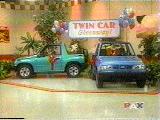
The Chevrolet Geo Tracker
From September 5-30, 1994, at the beginning of the show's final season on Lifetime, a month-long Twin Car Giveaway tournament was held. During the first three weeks of the tournament, a standard game was played each day. The twelve teams with the highest Big Sweep totals from these episodes at the end of the third week returned for the fourth and final week, in which games were played with no Bonus Sweep. The six teams with the highest Big Sweep totals during that final week returned for the Friday show to play for a pair of Geo Trackers. On the Friday show, the first three teams played an eight-question Round Robin game, where each correct answer was worth $50 towards their Sweep total. Each of the first three teams then had a flat three minutes in the Big Sweep. This process was repeated for the other three teams. At the end of the show, the team with the highest Big Sweep total won the two cars (a combined value of more than $25,000) in addition to whatever else that they won on their previous shows. All other teams kept their prior winnings. Team #1, James and Rick, won with a Big Sweep total of $1,598, and won a grand total of $28,710 (the highest grand total ever). A total of $84,562 in cash and prizes was won by the contestants over the four week period.
Other tournaments and specials
Occasionally, former teams were invited back to play for additional money or a trip. These consisted largely of "Sweeps of Champions" (later called "Second Chance")[2], which gave previous sweep winners after they lost $5,000 on their first appearance a chance to go on another Bonus Sweep for the opportunity to play and get a second chance at $5,000. On a few early "Sweep of Champions" episodes, former players were invited back for a chance to double their money to $10,000. Others include:
- "Gourmet Week": Allowed the teams to play for a trip to France.
- "You Can't Lose!": Like the Sweep of Champions and Second Chance episodes, but no Bonus Sweep was played during this week. At the end of that week, one team was guaranteed to win $5,000 after they lost on their first appearance.
- "Double Your Money Week": Similar to the few early "Sweeps of Champions" episodes from the Lifetime version, except in the PAX version the winning team with the highest Super Big Sweep total at the end on the final day didn't have to run around the market looking for another $5,000 as in early "Sweeps of Champions" episodes, they automatically doubled their money to $10,000.
- "Mother-Daughter Week": Featured on the Lifetime run with mother-daughter teams competing, sometimes with children under the age of 18. The daughters played in the first half of the question rounds (trivia games) and the mothers (pricing games) in the second. In the Big Sweep, it is either all mothers running or all daughters, depending on the teams' decisions.
- "Family Week": Similar to the Mother-Daughter Week in the Lifetime version (only with various family members), the Family Week in the PAX version had relative teams to win $5,000 at the end of the week. No Bonus Sweep was played in that week.
- "Cruise to Paradise": Invited back 12 former teams who lost their Big Sweep to play for a 7-day Carnival Cruise for two (and two guests) to the Mexican Riviera. No Bonus Sweep was played at the end of that week.
- "Cruise Week": Similar to the "Cruise to Paradise" week, except no Bonus Sweep was played throughout the entire week.
- "Tournament of Heroes": Troop teams were to win the $5,000 at the end of the week. No Bonus Sweep was played in this week.
Merchandise
Board Game
Milton Bradley (1966)
A board game based on the original 1965-1967 ABC TV series was once manufactured by Milton Bradley in 1966.
Video Slot Machine
WMS Gaming (2004)
A 5-reel, Video Slot Machine based on the Lifetime/PAX version was released by WMS Gaming in 2004. In the game, the prize check symbol shows up during the shopping spree Free spin bonus round, all line wins will get prize checked up to 8X! In the Supermarket Sweep bonus, the show starts as players pick grocery items for awards. Finding hidden prizes advances the player to the next aisle for bigger awards and eventually to the last aisle where the hidden grand prize is waiting to award the big money.
In popular culture
- On an episode of Laverne & Shirley, there was an episode title of the same name, "Supermarket Sweep". The title characters were Slotnik's one millionth customer. The man behind the counter said that they won a free shopping spree in the supermarket. They had 3:00 to grab everything they could get their hands on and whatever stuff they had must be over the line to be won. The hilarious duo shop like crazy. As soon as they have a heap of stuff, they get tired and all they win are two items.
- On the Dave Letterman Show, Dave makes an appearance on Supermarket Sweep as one of his clips of the week. Dave coaches the shoppers while wearing an Ithaca sweatshirt and a whistle around his neck.
- On the Married...with Children two-parter "You Better Shop Around", Al & Peggy Bundy compete against a rival in a shopping spree in the supermarket in which the Bundys are seeking refuge due to a broken air conditioner.
- After Elmo watches a video about sleep on the popular Sesame Street ending segment, Elmo's World, there is a parody mentioned called "Supermarket Sleep".
- There was also a kids game in the 1990s on Nickelodeon better known as Nickelodeon Super Toy Run, hosted by Mike O'Malley. Kids would have 5 minutes to grab everything, which would be toys before time was up. This was a similar concept to Sweep but it was toy shopping at Toys R Us.
- On GSN's 50 Greatest Game Shows of All Time, the Red Tag Special prop was used in the set.
| This page uses Creative Commons Licensed content from Wikipedia (view authors). |
Gallery
Press Photos
Set Drawings
Better Looking & More Accurate Drawings
Rating
Music
1965
The Dave Brubeck Quartet
Score Productions
1990
Christopher Rhyne
Inventor
Al Howard
Spin-offs
Arrasa con Todo con Kmart - A short lived Spanish language version of the show on Univision that aired in 2011.
The Honeymoon Race - Similar premise except that it was taped in shopping malls across the country.
International Versions
Here is a list of countries that did their own version of Supermarket Sweep:
- Argentina (Sume y Lleve 1987-1988/Clink Caja 1996)
- Australia
- Brazil
- Canada (both in French and English)
- Chile
- Greece
- Japan
- Spain
- Turkey
- United Kingdom ("Dale's Supermarket Sweep")
Additional Page
Supermarket Sweep/Quotes & Catchphrases
References
Links
Jay Anton's Rules for Supermarket Sweep
Josh Rebich's Rules for Supermarket Sweep
Rules for Supermarket Sweep @ The Game Show Temple
Official Pearson site for Supermarket Sweep (via Internet Archive)
YouTube Videos
An intro to Classic Supermarket Sweep
The first episode of the show
A 1990 episode with the different sweatshirts in the Big Sweep
A 1990 Sweep of Champions episode with "Mr. Yuck" in the Big Sweep
A 1990 Episode with the Round Robin permanently increases to six
A 1991 Sweep of Champions Episode of the Show
A 1992 Episode of the Show
Another 1992 regular episode of the show.
Part 1
Part 2
Part 3
A 1992 Sweep of Champions episode of the show.
Part 1
Part 2
Part 3
An early 1993 episode with yellow displays, plus a new theme music.
Part 1
Part 2
Another episode
$250 Super Bonus debuts, plus permanent blue displays.
Part 1
Part 2
Another episode
A 1993 episode, with a misgrab in the Mini-Sweep.
Part 1
Part 2
A 1993 episode, with first part missing
Part 1
Part 2
Part 3
A 1993 episode, where the winning team was so close to winning the $5,000 Bonus Sweep
Part 1
Part 2
Part 3
A 1994 episode where the winning team was so close to winning the $5,000 Bonus Sweep
Part 1
Part 2
A 2000 PAX episode, with two questions answered Jeopardy! style (i.e. in the form of a question) that would be completely frowned upon on Win Ben Stein's Money; plus the most big-money makers in one Big Sweep
Part 1
Part 2
Part 3
A 2001 PAX episode, with a goof-up in the 30-Second Shootout, and the Bonus Envelope
Part 1
Part 2
Part 3
Part 4
A 1993 episode featuring the Instant Coupon Machines and the Cake-decorating kit
A 1993 half-episode featuring just the Instant Coupon Machines
A 1993 Sweep of Champions episode
Another 1993 episode
The Twin Car Giveaway finale from 1994
A 1994 Episode with a repeated clue incident during the 30-Second Shootout.
The Cruise to Paradise Finale from 1994
A 1994 episode with the 1990 theme played after the Bonus Sweep
A 1994 episode with an error in the Checkstand Headlines game and the Super Sandwich
A 1994 episode with the Super Sandwich, a $7 difference in the Big Sweep, and a close $5,000 win
A 1994 Sweep of Champions episode
A 2000 PAX Episode
A 2001 PAX episode with a goof-up in the 30-Second Shootout, the Video Envelope, and the $5,000 found before the second item
A 2001 Double Your Money episode (also includes a regular episode up to the Mini-Sweep)
Another 2001 PAX Episode






